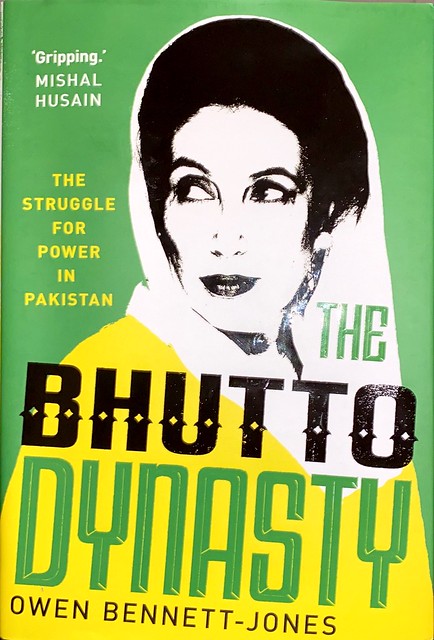2 minutes estimated reading time
Before reading The Bhutto Dynasty I knew very little about Pakistan. The story of the Bhutto family is a story of fierce ambition with bursts of hubris. But it is also the tale of the moghul empire of pre-Raj India, British rule and post-colonial Pakistan.
The Bhuttos have been at the centre of Pakistan government. It is an interesting parallel to the Nehru-Gandhi family in India.
The author Owen Bennett-Jones has had access to the family and its wider circle of friends in writing this book. Combining that with a long time covering Pakistani current affairs for the BBC and you end up with an informative book.
The Bhutto family power base comes from being land owners and being able to rely on a block of local voters. The feudal nature of their power base was important before, during and after British rule. These votes were often achieved through means, rather like the British rotten boroughs.
A second aspect of their success was their ability to change and adapt. Bennett-Jones talks about how they adapted and thrived using the British legal system. They also shifted their allegiances to match where Pakistan was going. Being recognised for their support to the British Empire to supporting Muhammad Ali Jinnah. Or from founding a political party that engaged with China, to becoming a centre right party.
I would have liked to know more about the Pakistani effort to develop nuclear weapons. As an outsider, this was the biggest event since independence for Pakistan.
It was fascinating how different members of the Bhutto family consistently under-estimated rivals. This was usually because they had a blind spot for clerics, the uneducated and of lower social standing.
Zulfikar Ali Bhutto grossly underestimated his own choice for chief of army staff. General Zia went on to depose Bhutto and bring in ten years of military government.
He compromised on laws sought by muslim clerics and was surprised when they were back demanding more, instead of appreciating what he’d given them. His daughter Benazir Bhutto underestimated the risk of her religious opponents and was assassinated by suicide bombers prepared by the Taliban.
I found The Bhutto Dynasty as a good introduction to South Asian history; rather than just a family biography. There are a number of aspects that I would like to understand more about. In particular, the rise of extreme political Islam, the India – Pakistan conflict, Pakistan’s relationship with China and the Pakistani nuclear programme. More book reviews here.
